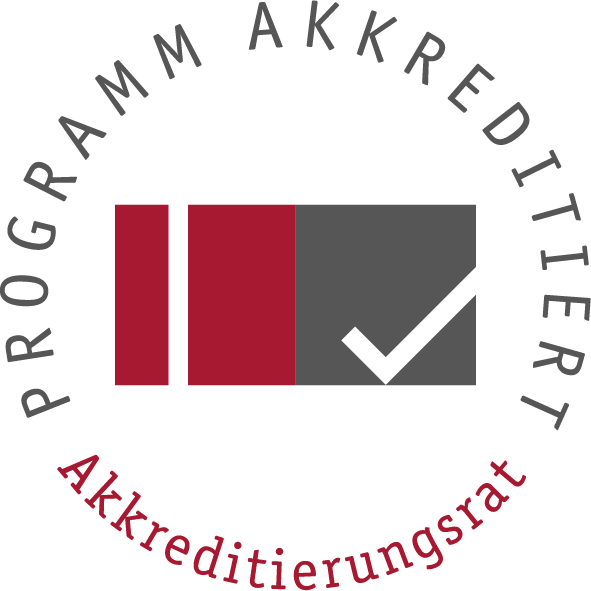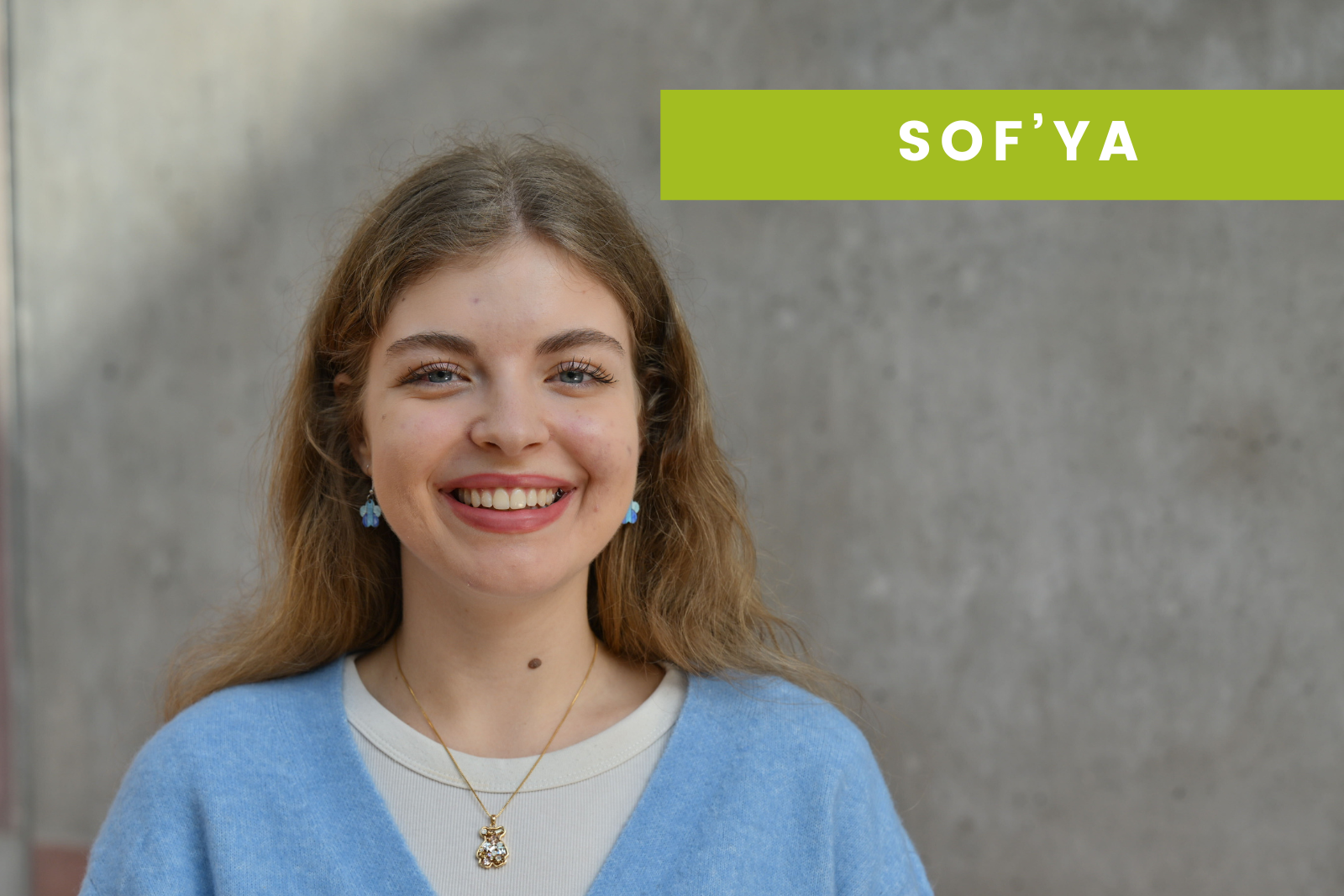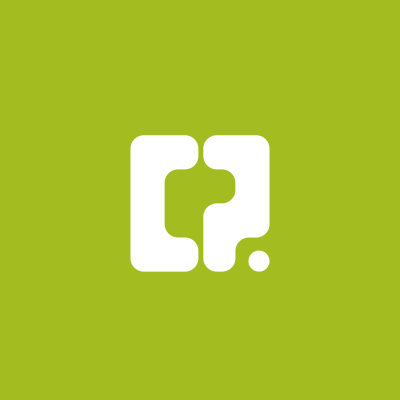Shape Digital
Europe
The digital transformation affects all of us. But it’s your choice to either stand by and watch or take an active role in shaping the digital future. At ENS, you will be equipped with the necessary knowledge and skills to become an architect of digital change - with excellent career opportunities in various fields of science, politics, civil society and economics.
Our Master of Digital Entrepreneurship (MoDE) program is based on the idea of knowledge entrepreneurship. We believe in a close cooperation between students and academic staff in teaching, team-based projects and everyday working life. You will have access to our very own Coworking Space which is the central meeting spot at ENS. Both academic and non-academic mentors will help you to plan and realize your project ideas and support you in developing your personal network of partners from business, politics and civil society.
Master of
Digital Entrepreneurship
Degree
Duration
Language
Disciplines
Project-Based
Costs
You have a plan on how to confront the challenges of the digital world but don’t know where and how to start? The ENS Master of Digital Entrepreneurship (MoDE) will provide you with the knowledge to implement your own digital project!
Starting from understanding the challenges and prospects of the digital society, you will gather a skillset ranging from developing and reflecting on your very own entrepreneurial solutions to the great questions of the digital transformation in Europe.
The MoDE is a transdisciplinary, international double-degree program offered by the European University Viadrina (Germany) and the Adam Mickiewicz University Poznan (Poland). It combines the Viadrina’s strengths in entrepreneurship and social analysis with the Adam Mickiewicz University’s renowned expertise in science and technology studies. You have the chance to receive a master's degree from both the European University Viadrina (EUV) and the Adam Mickiewicz University (AMU) Poznan. After being accepted to the program, you have to enroll at both universities (see more information below). By taking courses from both universities, completing an internship in the field of digital technologies and submitting a master’s thesis co-supervised by professors from both sides you will be eligible to get the Master of Digital Entrepreneurship double degree, recognized throughout Europe.


A Lifetime Community
Sof'ya, MoDE Student since October 2023
Sof’ya Zagorodnya is studying the Master of Digital Entrepreneurship (MoDE) program at ENS. Having finalized her BA studies in English and Ukrainian languages and literatures in Kyiv, Ukraine, she found her favorite Master’s program and a new home in the German-Polish twin-city of Frankfurt (Oder) and Słubice.
"Studying the Master of Digital Entrepreneurship (MoDE) at the European New School of Digital Studies is not just about gaining knowledge — it’s about the people you meet along the way. From day one, we’re in this together. We take classes as a cohort, collaborate on projects, support each other, and build real friendships. In many universities, every lecture is a new set of faces — but here, at ENS, we build lasting connections.
What also makes the MoDE program special is the mix of different academic backgrounds. We come from fields like law, politics, PR, business, computer science, social and cultural studies, linguistics, and more. This diversity is interesting and powerful. It means that when we want to launch something meaningful — whether it’s a startup or a research project — we already have the perfect team.
At the same time, the relationship between students and professors is unique. There are no strict barriers. Our professors are more than just experts in their fields — they are mentors and collaborators. They treat us as future peers, encourage us to think critically and develop our own paths, and they are always there to support us.
MoDE isn’t just a degree. It’s a space where we learn, grow and create together. We are not just preparing for the future, but shaping it. And, as we move forward, we carry this community with us."
As a graduate of the MoDE, you will have a firm foundation in ethics and the know-how to organize, plan and run a business, both profit and non-profit. You will learn how to analyze markets and to establish an economically sustainable unit that integrates the promises of democracy and human rights with digital technologies.
The ideal project for applying for the MoDE is digital, creative and promises to contribute to making the world a better place. It puts you in the driver’s seat of a non-profit, not-for-profit or profit-oriented entrepreneurship. Your project could be a platform offering services, a tool for solving real-world problems, an algorithm fostering a fair distribution of a scarce resource, or any other entity that is worth working on. You do not need to have a proper business plan, well-reasoned ideas about your entity’s legal set-up or a team that is capable of implementing it. Although it is no mistake to have thought about these issues (even less so to have answers and to report them), we do not require them. We will help you develop them during your stay at ENS. It is more important for us that you have an innovative entrepreneurial idea and that you believe enough in it to convince us of its merits. We are looking forward to learning from you and to offering our help in realizing your ideas!
The MoDE has a modular structure enabling you to choose from a variety of topics according to your individual aims and profile:
The first part of your studies will comprise a basic introduction to the theoretical and methodological fundamentals of digitalization from the different scientific perspectives involved. Moreover, you will acquire practical skills in technical topics, project management, law and business while already starting to work on your individual specialization.
The second part of your studies will give you the chance to focus on your individual or group project, complete an internship and work on your master's thesis.
Examples of courses:
- Digital Law and Ethics
- Theories of Management in the Digital World
- Sociology of Technology and Digital Society
- Managing Emerging Technologies in Entrepreneurial Contexts
- Computer Science in Management
- Entrepreneurship in Action
- Web Design
- Sociology of Technology
curious to hear more? Send us an This email address is being protected from spambots. You need JavaScript enabled to view it. or come for a visit!
Applying
The Master of Digital Entrepreneurship (MoDE) is a double-degree program offered by the European University Viadrina (Germany) and the Adam Mickiewicz University Poznan (Poland).
To do the double degree, students have to enroll at both universities.
Who can apply
You may apply to the MoDE if you:
- Have a Bachelor’s Degree or a comparable undergraduate academic degree
- Have collected 10 ECTS in two of the major subjects of the MoDE (economics, law, sociology, political science, informatics, interdisciplinary digital studies. Please note: 10 of the 20 ECTS can be acquired until the start of the 3rd semester.)
- Speak and write fluently in English (level C1 of the Common European Framework of Reference for Languages)
When to apply
You can apply for the MoDE from 01 - 31 May 2026.
How to apply
IF YOU HAVE ANY QUESTIONS REGARDING THE APPLICATION PROCESS at Viadrina, DON’T HESITATE TO CONTACT US!
General information
- If you have a German academic degree and/ or German citizenship, please apply through the online admission system at Viadrina and go this way.
-
If you have an international academic degree, please read this guide. International applications for the MoDE are processed by uni-assist. Please submit the required documents online.
Certificates
- Your Bachelor’s Degree, including the respective Transcript of Records
- Your certificate of language proficiency in English (can also be presented upon enrollment).
Please click here for a list of accepted certificates.
LIST OF ACCEPTED CERTIFICATES
As admission prerequisite, applicants must proof that they have fluency in written and spoken English corresponding to level C1 of the Common European Framework of Reference (CEFR). The following certificates are accepted as proof of English language proficiency:
- Cambridge C1 Advanced (CAE)
- IELTS (Academic): 7.0 points minimum
- TOEFL (iBT): for exams taken on or after January 21, 2026: minimum score: 5. For exams taken before January 21, 2026: 95-120 points minimum
- TOEIC: 945 points minimum (listening/reading), 180 points minimum (speaking), 180 points minimum (writing)
- Certificate UNIcert III
- viadrina Dialog und Transfer gmbh placement test
Please note:
1. We do not accept any language certificate besides the above mentioned.
2. Original certificates must at the latest be presented at the time of enrollment.
3. Please arrange for the language certificate to be sent directly from the test institute to the admissions office.
Copies – notarized or not – will not be accepted.
4. The language certificate may not be older than three years.
5. Students, who have successfully completed a Bachelor or Master in English at a German, UK or US university worldwide, do not need to provide a proof of English language knowledge.
6. Students, who have successfully completed a Bachelor or Master in English at a university located in one of the following countries, do not need to provide a proof of English language knowledge:
- Antigua and Barbuda
- Australia
- The Bahamas
- Barbados
- Belize
- Canada (except Québec)
- Dominica
- Grenada
- Guyana
- Ireland
- Jamaica
- Malta
- New Zealand
- St Kitts and Nevis
- St Lucia
- St Vincent and the Grenadines
- Trinidad and Tobago
- United Kingdom
- United States of America
Project Outline
Motivation Letter
Portfolio
Please outline special professional achievements (academic, personal, experiential, etc.) in the form of a portfolio and - if available - corresponding testimonials or certificates that show your individual eligibility for the study program. This could, for example, include an academic reflection on the digital society, internships, business start-ups or work in civil society initiatives.
What´s next?
Enrollment
... you have been accepted for the Master of Digital Entrepreneurship?
Congratulations! Please complete the enrollment process at European University Viadrina as advised. To enroll at Adam Mickiewicz University, you have to create an account here and submit the requested documents by 26 September.
After Admission
Arrival
You have been accepted to study at ENS? Congratulations! It is now time to prepare for your life here in Frankfurt (Oder) / Slubice. To get the most out of your time at ENS, some of our MoDE students have gathered some very practical and recent information for arriving and staying in Germany as an international student.
Survival Guide for International Students (2023)
The International Office at the European University Viadrina has published various information for incoming students on their website, too. Here, you find many relevant topics including your journey, visa, accommodation, further administrative processes and general information on our university and city.
When planning your journey and accommodation, please do not confuse Frankfurt (Oder) and Frankfurt (Main)!
Additional information on general issues regarding your stay in Germany and Poland can be found on the website of the German Academic Exchange Service (DAAD).
You are finished with the paperwork but don’t know where to stay in Frankfurt (Oder) / Slubice or where to get a proper beer? Check out our guideline on and Student Life. Any other questions? We are glad to
Please note: If you decide to move to Slubice instead of Frankfurt (Oder), you will live within the jurisdiction of the Republic of Poland. Therefore, you will have to deal with the immigration processes with the Polish administration and apply according to their regulations.
If you need support with this, we will gladly support you! Don’t hesitate to
Housing
In Frankfurt (Oder) and Slubice everything is close by and living is affordable. Limited housing capacity, unaffordable rents, people camping on the streets while desperately seeking for an accommodation – this is the reality in many university towns across Europe, but not here! Frankfurt (Oder) is one of the cities with the lowest rental costs in Germany. The twin town Frankfurt (Oder)/Slubice offers many possibilities for single or shared housing and all offers are within reasonable price ranges.
Student dormitories
Both Frankfurt (Oder) and Slubice offer a great variety of student dormitories. The Studentenwerk runs six different dorms in Frankfurt (Oder) with single-room apartments or beds in apartments up to five rooms. In shared apartments, tenants are always provided a private single bedroom. The monthly rent ranges from 190 EUR to 275 EUR (all expenses included). Click here for the application form.
You can find a brand new dormitory in the heart of Frankfurt (Oder), where you can chose between single or shared apartments with up to 3 students per flat. Prices are all the same at 320 EUR per month. Further information can be found at the official website of the “Ferdinandshöfe”.
In Slubice, there are 5 dormitories on one campus offering single and double rooms with or without private bathroom and access to a shared kitchen, as well as single and double rooms with or without private bathroom in units with 4 to 6 people and a shared kitchen. The monthly rent varies between PLN 370 to PLN 730 (expenses included, approx. 90 to 170 EUR). You can find further information on the dormitories in Slubice here. For the price list and contact details, click here.
Hint: The dormitories in Slubice and “Große Oderstraße” in Frankfurt are both within a five to ten minute walking distance from the Collegium Polonicum, the location of the ENS.
Shared Flats
Shared Flats are among the most popular ways of living for students in Germany. The rental prices in Frankfurt (Oder) are affordable, a room in a shared flat will cost you around 300€/month. If you are looking for a flat community, check out the free platform www.wg-gesucht.de. Important: There is another city in Germany called Frankfurt – Frankfurt (Main). Be careful not to confuse these two. The ENS is located in Frankfurt (Oder).
Student Communities
Frankfurt (Oder) has awesome students! In 2006, some of them have founded an international housing project called “Verbündungshaus Fforst”. If you are eager to get to know fantastic people and live together in a vivid environment, you should definitely get in touch with them.
Further Options
If you prefer to live alone in a regular apartment or need support with your decision, you can find more information here or
You found your flat but are looking for a place to meet nice people? Check out our guide on Student Life!
Student Life
Frankfurt (Oder) and Slubice – the twin towns bridging the Oder river, which also denotes the Polish-German border is less than an hour away from the German capital of Berlin and just two hours away from the Polish city of Poznan. The unique location between two countries is just one reason, why Frankfurt (Oder) and Slubice is a place worth studying at.
Unfortunately, this unique location has gone rather unnoticed by many students – which is, at the same time, a huge potential for you as a student at ENS to contribute to the life and the events that shape both towns and ENS. Studying and living at the river banks of the Oder does not mean attending the same events, the same parties and the same routine over and over again. It means that you have a major influence on your individual life here and an impact on the progress of the region. There is a lot of space for you to create and shape – both at the Viadrina University and in the city of Frankfurt (Oder) as well as in Slubice and at the Collegium Polonicum.
Location, location, location
Did you know that the world`s first and only monument in tribute to Wikipedia is located in Slubice? This and many other extraordinary sites in Frankfurt and Slubice are waiting to be explored! Discover hidden beautiful places and your personal favorite spots, which you don’t have to share with shoals of tourists. Party hard or enjoy the silence at Ziegenwerder Island right at the riverside, spend your leisure time bouldering or on the beach of lake Helenesee - it’s your choice!
Frankfurt (Oder) has several theatres, museums and cultural highlights such as the concert hall "Carl Philipp Emanuel Bach", home of the state orchestra of Brandenburg. Famous personalities, such as Alexander von Humboldt or Heinrich von Kleist have left their marks in the city. Annual events like the students’ theatre festival "Unithea" or the city festival are an integral part of the city’s characteristics.
If you seek even more action it is good to know that Berlin is just a one-hour train ride away. With your included student’s ticket, you can go there as often as you want (without additional costs) and spent unforgettable weekends in one of the most fascinating capitals of Europe.
Make an impact!
Frankfurt (Oder) and Slubice are great places to develop yourself and Viadrina University as well as Collegium Polonicum provide the perfect opportunity to get involved in student life. The General Students’ Committee (AStA), the Students’ Parliament and other committes offer the chance to represent the interests of other students and to stand up for your ideas. Dozens of students’ societies assist you with developing a versatile skillset beyond your curriculum. You find a students’ consulting group as well as a students’ consulting group as well as a UNO society, a university sports club and many more. If you have an idea for something different – just start a new group! Both the university and the students’ community will support you, which is why there is hardly any better place to make your own idea come true.

